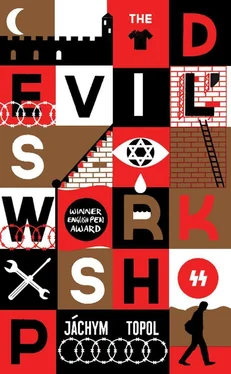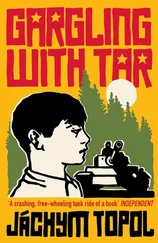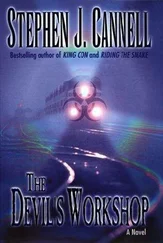They strolled around the town with their brooms, sweeping stuff up into little heaps. None of them laid a paw on any of our students again, though I think it was less out of pride than because they were under supervision.
They need light, joy, and activity, Sara declared the evening I dragged her out from under the eager Kamínek, when she set out her plan for the Happy Workshops, and Lea the Great confirmed that, yes, a humane approach like this to human ruins was precisely in line with the thinking of John Amos, and so the project became part of the Comenium.
You can tell a society’s values by the way it treats those who are worst off, Sara explained when I marvelled at her reaction to having nearly been raped, perhaps even beaten to death or tortured in a lair under the ramparts, and the devil knows what else.
No one would’ve been surprised if you had gouged his eyes out. I would’ve held him down.
She gave me a look.
*
Then the summonses started arriving.
Lebo crumpled them up in little balls and tossed them on the ground. He had neither the time nor the inclination to answer some stupid questions from some stupid court, he was too busy teaching. Meanwhile I stood on Central Square, holding the goats by their tethers, watching as the court’s summonses disappeared in the dust, trampled to bits by tourists. We also had families come and visit us in Terezín, and to the delight of the children I sometimes brought my goats to Central Square. One day I placed the rope from around the neck of one of my last nanny goats into the age-and work-hardened palm of Aunt Fridrich, who led it away to the cookshop. I ran off to my office in the bunkroom. I couldn’t take care of the goats the way I used to any more — everything was in motion, things were going on.
Soon the first charges arrived from the Monument, claiming that the erection of the Main Tent on Central Square constituted a gross desecration of this sacred site, from which hundreds of thousands had gone to their death in the camps. All our hustle and bustle and selling was completely against the law, they said, and Lebo scrunched the charges up into little balls and tossed them on the ground. He never noticed that whenever I heard the word ‘charges’ I broke out in a hideous sweat. I was a former convict and didn’t want to go back to prison. I was pretty sure the prison directors couldn’t care less about me — they no longer needed my former speciality — but the rest of them in the slammer, especially the heartless gangsters, the bloodthirsty sickos and rapists, who nobody hung any more, had never forgiven me for running the Pankrác ropery. They all knew each other, and the world of bars and cells has a memory measured in decades.
I knew I didn’t want to go back to jail.
Nothing wrong with that, is there?
That was the other reason why I said yes to the Belarusians, why I went along with Alex.
I wanted to tell Lebo, after I had wiped the sweat of dread off my brow, but he was hurrying off to the evening sitting. Twilight was settling over the ramparts and the sittings were the most important thing for our society. Lebo didn’t pay as much attention to me as he used to, and no wonder! I wasn’t the only one whose shoulder he could lay his hand on any more. There were plenty of young people, younger than me, who called him Uncle Lebo now. And they kept coming, to the displeasure of the eggheads and the politicians from the Monument. More and more visitors were leaving the buses and heading straight to us, through the nettles and flattened fences, over piles of rubble, through Manege Gate. They found their way to Central Square and stuffed themselves with ghetto pizza, bought Kafka T-shirts, and took pictures of Lebo in his black suit bearing witness to the terrible times of long ago. And they also took pictures of Sara, of course, since she was a beauty, and of Lea the Great — they’d never seen anything like her before — and the girls at the stall always had a petition handy for visitors to sign, saying No to the Bulldozers!
That was when Rolf came and found us again. Rolf the journalist, who had set the whole revitalization of Terezín in motion, who had listened closely to Lebo, to all those horrible stories that ended somewhere in the black holes of Poland or Lithuania or maybe Belarus. Rolf came back and took pictures of the newcomers, the seekers of the bunks, who would turn up every now and then with a confused look on their face and head straight for the Main Tent. They’d already heard that nobody here could help them work out how all that horrible stuff could actually happen to people, but at least they could learn how to live with the knowledge of that horror, and Rolf’s pictures in the glossy magazines of the world — pretty pictures of pretty young people in T-shirts, shorts, ponchos, and capes of every colour, with alternative decorations, sporting shaved heads or dreads down to their waist — motivated other young people to come and see what was going on, and the battle to save the town felt absolutely right to them. In a world where everything’s relative, this is an ethically unambiguous issue, Rolf explained, and that means I’ve got a hit! he said, eyes smiling behind his glasses. Rolf walked around town rhapsodizing about the influx of young people and what fantastic material it was, since Lebo’s stories themselves wouldn’t captivate anyone, it was all too long ago. You’re in the heart of darkness here, touching the depths of horror, it’s irresistible! he assured us. The evening sittings with Lebo and the crowd filling up the Main Tent and our nightly dances in the grass below the ramparts — the newspaper world was enraptured by it all. Your energy is sending the world a powerful signal! Rolf said. He probably meant his memory of the world, since he lived with us too, drinking in the ordinary life of the town, helping old Aunt Fridrich lug the tubs of washing to the laundry at the station, which must’ve been pretty tough for a skinny guy like him. Then he’d stand around the crummy little station, lost in thought, while Aunt Fridrich washed and pressed and gossiped. Rolf would stand staring at the tracks, his eyes following the rusty rails to the point where they disappeared into Poland, just beyond the horizon, where all the trains from Terezín had gone. But the moment old Aunt Fridrich called him, Rolf was right there at her side, ready to lug the tubs again.
One day Rolf was walking me out to pasture with Bojek — we would do that together from time to time — and there, at the foot of a tall rampart, we ran into Alex, from Belarus. He had just arrived in Terezín, with Maruška, a redhead. Both of them had backpacks on. It was obvious she was with him.
We greeted the newcomers, shook hands, and Alex told us they had just chosen their names now, as they walked through Manege Gate. They sound Czech enough, don’t you think? he said.
Sure. I nodded. Rolf didn’t care, he didn’t speak Czech.
Alex explained that he had learned Czech as a soldier in the Soviet army that occupied our country after 1968. I kept Bojek on a rope. He didn’t mind Rolf any more, but I’m sure he would’ve been happy to butt Alex or Maruška.
While Alex stood there talking, waving his arms around, Rolf took out his camera — he often sold stories about newcomers to magazines so the world could see how the Comenium was growing — but at the sound of the first click Alex shot out his hand and Maruška twitched wildly. The next thing I knew they had Rolf boxed in and Alex was holding the camera, saying things were different in Belarus than in the rest of Europe and they weren’t too keen on any publicity, got it?
Got it! Rolf squeaked. Alex handed his camera back. I noticed his long, nervous fingers, which would really come in handy working at the computer, say, or using a scalpel — he had said he was a medic, worked at the Biochemical Institute at the Soviet base in Milovice. I think he told us that so we wouldn’t think he’d driven one of those tanks that shot people here in ’68, or even worse, that he was KGB. Are you kidding? A lowly medic? We kept the chatter moving so we could get acquainted, and also, I’m sure, to clear our minds of Alex’s brief act of violence. You’re from Belarus? And it’s different there? OK, we respect that. We nodded at each other, smiling.
Читать дальше












